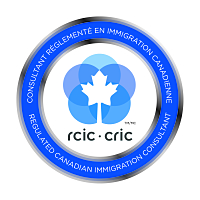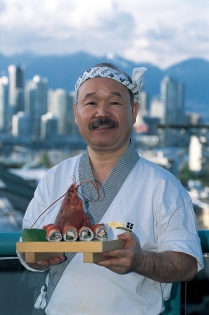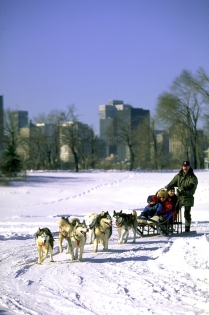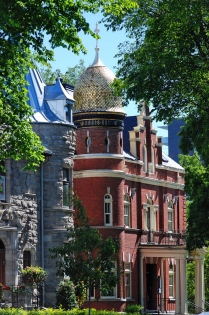Permanent resident visas
- What is a Permanent resident visa
- Federal skilled worker class (also known as Skilled worker class with destination to any Canadian province/territory except Quebec)
- Quebec-selected skilled workers (also known and referred hereafter as Quebec skilled worker class)
- Canadian experience class
- Business immigration class (investors, entrepreneurs and self-employed persons)
- Provincial nominees
- Family class (also known as Family reunification, and also known and referred hereafter as Family sponsorship)
- Admissibility criteria
- What is the next step
A permanent resident visa is essentially the material evidence (usually a sticker to be affixed into one’s passport) that an official authorisation has been granted by the relevant authorities allowing a foreign person to enter, live and work anywhere in Canada for an undetermined period of time, conferring upon that person permanent resident status. However, in order to maintain his status as a permanent resident, one must meet certain residency obligations. A permanent resident has most of the rights that Canadian citizens have under the Canadian Charter of Rights and Freedoms*, though, one cannot vote or run for political office until after he has been granted Canadian citizenship. A person who is a Canadian permanent resident may apply for Canadian citizenship after 3 years.
In the categories of permanent resident visas, we distinguish 2 main types of immigration:
- Economic immigration (federal skilled worker class, Quebec skilled worker class, Canadian experience class, investors, entrepreneurs and self-employed people, provincial nominees)
- Immigration through family reunification (referred hereafter as family sponsorship)
The first type, the economic immigration, is recognized as an independent type of immigration because all applicants in its underlying categories (federal skilled worker class, Canadian experience class, etc.) are selected as permanent residents based on their ability to become economically established in Canada. The economic (or independent) categories are the most prevalent since one can apply as a skilled worker based on his own merits without having a family member in Canada. On the other hand, when an applicant (the “sponsored immigrant”) wishes to immigrate to Canada under the family sponsorship category, his close relative or family member in Canada (“the sponsor”) is responsible for financially supporting him for a predetermined period of time. That is why this type of immigration is often referred to as sponsored (or non-economic) immigration opposed to the independent (or economic) immigration.
It is important to note that in some cases, a permanent resident service might be required to support an application for a permanent resident visa.
There are many ways to make Canada your new home and we, at VisaPro.ca, can assist you at every step of the process. The different categories of permanent resident visas offered are described here below.
- Federal skilled worker class (also known as Skilled worker class with destination to any Canadian province/territory except Quebec)
The federal skilled worker class is a category seeking to attract foreign nationals whose education and work experience will help them become economically established in Canada as permanent residents. The main purpose for encouraging this type of immigration is to attract individuals with good education and employment skills who will also contribute to Canada's economic growth and development. The federal skilled worker class is a relatively complex category as prospective applicants are selected in several steps and assessed for eligibility according to a set of pre-established criteria. First step, all applicants need to meet some specific language requirements. Second step, an applicant needs to prove either that he has a valid offer of arranged employment in Canada (path 1) or that he has at least 1 year of very specific work experience (path 2). While the field of the arranged employment (path 1) is more or less restrictive at this point in the process, the 1+ year of work experience acquired in order to be considered (path 2) must fall not only within some particular skills sets of the national occupational classification (NOC)✝ list such as managerial, professional, technical or skilled trades, but in addition these skills sets need to have been acquired in one of the very few suitable occupations as identified by the Government of Canada. This highly-restricted list of occupations such as dentists, specialist physicians, etc. is revised regularly based on the ever evolving needs of Canada’s labour market.
If these minimum requirements are met, then the application will be processed according to the six selection factors in the skilled worker points grid; this constitutes the third and final step of the process. The points system is based on the following main factors: education, language, experience, age, arranged employment and adaptability. Skilled worker applicants who’ve met the minimum requirements might not receive enough points at this critical step to qualify under the federal skilled worker class. The minimum passing mark varies regularly based on different factors. Finally, once applicants went through these 3 aforementioned steps, they must demonstrate that they have enough money to support themselves and their family after they arrive in Canada. Medical and security requirements must also be met before being granted the permanent resident visa.
You already got your arranged dream job offer from a major railroad company in Calgary and wish to settle as soon as possible? You have significant working experience as a highly sought after oil drilling supervisor, you’re dreaming of Newfoundland and its striking coast and you think the federal skilled worker class suits your profile? Then you need a permanent resident visa as a federal skilled worker and we can help you get one quickly and emigrate as soon as possible. Please check below our Admissibility criteria for more details.
This category refers to people who want to become established as skilled workers in [the province of] Quebec. The Canada-Quebec Accord is an agreement, signed in 1991, which specifies that Quebec is solely responsible for the selection of applicants destined to the various regions and cities of Quebec. On the other hand, federal responsibility under the Canada-Quebec Accord is to assess an applicant’s admissibility and issue temporary or permanent resident visas. Under this same accord, Quebec establishes its own immigration requirements and selects immigrants who will adapt well to living in Quebec. Therefore, individuals who want to settle and work in Quebec must be at first selected by the Government of Quebec and obtain a certificat de sélection du Québec (CSQ – Quebec selection certificate). The CSQ might have been obtained either through the usual path (according to a standardised points grid) or under the Programme de l’expérience québécoise (PEQ – Quebec experience program), in case the applicant previously studied or worked in Quebec. With this specific certificate from the provincial authorities in hand, one can then complete the application for permanent residence. This application will then be finalised by the federal immigration authorities of the Government of Canada. Candidates as well as their family members must also pass a medical examination in addition to security and criminal checks.
Your first language is French, you’ve been working as a civil engineering technician in Montreal for over a year and now that you fell in love with “the city of a hundred belltowers”, you wish to permanently settle down? You’ve been working as a nurse for almost 2 years under temporary resident status and you’ve heard about the highly-appealing premiums paid to nurses in Nunavik where, actually, you wanted to settle? Then you need a permanent resident visa as a Quebec skilled worker and we can help you get one quickly and emigrate as soon as possible. Please check below our Admissibility criteria for more details.
The Canadian experience class is a category designed for people who have recent Canadian work experience or have graduated and recently worked in Canada. Temporary foreign workers or foreign students who graduated in Canada have all acquired knowledge of English or French and are fairly familiar with the Canadian society; they often prove to have all the essential qualities to make a smooth and successful transition from temporary to permanent residence.
To apply for permanent residence under this category, a person must choose to live outside [the province of] Quebec and either be a temporary foreign worker with at least two years of full-time skilled work experience in Canada or a foreign graduate from a Canadian post-secondary institution with at least one year of full-time (or equivalent) skilled work experience in Canada. The applicant must have gained his experience in Canada with the appropriate work or study authorisation and apply while working in Canada or within one year of leaving his job in Canada. Therefore, if an applicant wishes to apply for permanence residence under the Canadian experience class, either a study permit or a work permit must inevitably have been obtained somewhat recently by the applicant.
Once an applicant applies as a temporary foreign worker, his application will be assessed based chiefly on his work experience and proficiency in English or French. If an applicant rather applies as a graduate of a Canadian post-secondary educational institution with Canadian work experience, his application will be assessed based on his work experience, proficiency in English or French, and education.
You are currently working as a miner in Abitibi-Témiscamingue and you’d be interested in moving West to work for a major uranium mine in Saskatchewan? You have been working and studying in Edmonton since a couple of years and renewing your work permit constantly is money and time consuming? This is your greatest chance to finally make Canada your home and have your application submitted under the Canadian experience class. We can help you get your permanent residence status quickly; please check below our Admissibility criteria for more details.
 © The business immigration class is a category seeking to promote economic development and employment by attracting people with capital, business acumen and entrepreneurial skills. This category intends to develop new commercial opportunities and to improve access to growing foreign markets by receiving people who are familiar with those markets and their special requirements and customs. The business immigration class is also meant to support provincial and territorial economic objectives.
© The business immigration class is a category seeking to promote economic development and employment by attracting people with capital, business acumen and entrepreneurial skills. This category intends to develop new commercial opportunities and to improve access to growing foreign markets by receiving people who are familiar with those markets and their special requirements and customs. The business immigration class is also meant to support provincial and territorial economic objectives.
Canada has three classes (or sub-categories) of business immigrants: investors, entrepreneurs and self-employed persons. The criteria a potential applicant must meet to qualify are different for each class. Each application can be made for only one class and cannot be changed once the application is submitted.
- Investors
The investor class seeks to attract experienced business people with capital to invest C$800,000 into Canada’s economy. A person’s investment money will contribute to the economy and create jobs in the participating provinces. The Government of Canada will return 100% of the initial investment to the investor, without interests, five years after he became a permanent resident of Canada. In order to qualify under the investor class, one must first meet the following criteria:
- Show that he has business experience
- Have a minimum net worth of C$1.6 million that was obtained legally
- Make a C$800,000 investment
- Entrepreneurs
The entrepreneur class seeks to attract experienced business persons who will own and actively manage businesses in Canada, thus contributing to the economy and creating jobs. In order to qualify under the entrepreneur class, one must first meet the following criteria:
- Show that he has business experience
- Have a minimum net worth of C$300,000 that was obtained legally
- Respect the conditions for entrepreneurs after they arrive in Canada
- Self-employed persons
The self-employed person class seeks to attract applicants who have the intention and ability to become self-employed in Canada. In order to qualify under the self-employed person class, one must first have either:
- Relevant experience that will make a significant contribution to the cultural or athletic life of Canada, or
- Experience in farm management and the intention and ability to purchase and manage a farm in Canada
For all three classes of business immigrants, if the minimum requirements are met, then the application will be processed according to the five following selection factors: experience, education, age, language and adaptability. Business immigration applicants who’ve met the minimum requirements might not receive enough points at this critical step to qualify under the business immigration class. The minimum passing mark varies regularly based on different factors. Furthermore, once applicants went through all required steps, they must demonstrate that they have enough money to support themselves and their family after they arrive in Canada. Medical and security requirements must also be met before being granted the permanent resident visa. Finally, it is important to note that individuals who want to settle and work in Quebec must be at first selected by the Government of Quebec and obtain a certificat de sélection du Québec (CSQ – Quebec selection certificate).
You are an acclaimed avant-gardist movie director and you’d like to settle and start an acting/directing school in Toronto? You are a prosperous owner and Director General of an important logistics company and you’d like to settle in and open a branch in Vancouver? You’ve succeeded in establishing a flourishing goat farm in your home country and producing highly-praised aged goat cheese and you’d like to buy some pasture land and settle in New Brunswick? Then you need a permanent resident visa under the business immigration class and we can help you get one quickly and emigrate as soon as possible. Please check below our Admissibility criteria for more details.
Most provinces and territories in Canada have an agreement with the Government of Canada that allows them to nominate immigrants who wish to settle in that province or territory. The provinces and territories participating in such agreement are the following: Alberta, British Columbia, Manitoba, New Brunswick, Newfoundland and Labrador, Nova Scotia, Ontario, Prince Edward Island, Saskatchewan, Northwest Territories, and Yukon. Hereafter in this section, the word province refers to both provinces and territories of Canada.
If you choose to immigrate to Canada as a provincial nominee, you must first apply to the province where you wish to settle and complete its provincial nomination process to be granted the required provincial nomination certificate. However, the federal immigration authorities of the Government of Canada still conduct the security and medical screening and retain the right to make the final decision. Applicants must also show that they have enough money to support themselves as well as their dependents after they arrive in Canada. As provincial nominees, the applicants receive faster processing of their permanent resident application compared to other categories of permanent residence.
You’re a high school music teacher who possesses strong pedagogical skills, you like grandiose wide-open spaces and you’d like to settle down in one of the Northwest Territories urban centres? You are an experienced virologist and you’d like to emigrate and work for the Canadian Science Centre for Human and Animal Health in Winnipeg, Manitoba? Then you need a permanent resident visa under the provincial nominees category and we can help you get one quickly and emigrate as soon as possible. Please check below our Admissibility criteria for more details.
- Family class (also known as Family reunification, and also known and referred hereafter as Family sponsorship)
 © Family reunification is a key objective of Canada's immigration policy. Canadian citizens and permanent residents living in Canada, 18 years of age or older, may sponsor close relatives and family members who want to become permanent residents of Canada.
© Family reunification is a key objective of Canada's immigration policy. Canadian citizens and permanent residents living in Canada, 18 years of age or older, may sponsor close relatives and family members who want to become permanent residents of Canada.
Among other requirements, the Canadian citizens or the permanent residents (the “sponsors”) must promise to financially support the close relative or family member wishing to immigrate to Canada (the applicant, known also as the “sponsored immigrant”) along with his accompanying family members, for a period of three to ten years, to help them settle in Canada. Sponsorship thus constitutes a significant commitment not be agreed without due consideration. Finally, it is important to note that individuals who want to settle in Quebec must be at first selected by the Government of Quebec and obtain a certificat de sélection du Québec (CSQ – Quebec selection certificate).
The type of family sponsorship application and its submission procedure differ depending on the relationship between the sponsor and the applicant, and whether the applicant is abroad or already in Canada at the time of submitting his application. The family sponsorship category distinguishes the following groups:
- Spouses:
- Married spouses (wife or husband)
- Common-law partner
- Conjugal partner
- Dependent child
- Parent or grandparent
- Brother, sister, nephew, niece, grandson or granddaughter, who has been orphaned, is under 18 years of age and is not a spouse or common-law partner (also known and referred hereafter as Minor/orphaned relative)
- Other relatives (also known and referred hereafter as Chosen remaining relative)
- Spouses
The family sponsorship category under the spouses group allows a Canadian citizen or a permanent resident to sponsor his/her spouse, so they can reunite in Canada. It allows for instance legally married same and opposite sex partners to join their wife/husband in Canada under the married spouses visa. It also permits eligible same and opposite sex partners who have been living together to establish their home in Canada under the common-law visa. Finally, it allows eligible same and opposite sex partners who have not been living together to reunite with their Canadian partner under the conjugal partner visa.
- Married spouses (wife or husband)
To be eligible to sponsor his/her married spouse (same or opposite sex) and any dependent children for permanent residence in Canada, a sponsor must be a Canadian citizen or permanent resident living in Canada and be at least 18 years of age. The sponsored immigrant must be legally married to his/her sponsor, in either a same-sex or opposite-sex marriage that is legally valid and recognised by both Canadian law and the law of the country where the marriage occurred. The sponsor living in Canada and the sponsored immigrant living abroad must also demonstrate that their union is of a genuine and continuing nature and that they do intend to live together in Canada, upon approval. The sponsor is required to agree to provide financial support for his/her married spouse for three years, and for any dependent children for up to ten years, so that the spouse will not need to apply for social assistance. Sponsors who have previously sponsored relatives or family members to come to Canada may need to satisfy additional requirements to be eligible to sponsor their spouse for permanent residence.
- Common-law partner
To be eligible to sponsor his/her common-law partner (same or opposite sex) and any dependent children for permanent residence in Canada, a sponsor must be a Canadian citizen or permanent resident living in Canada and be at least 18 years of age. To be eligible under the common-law subgroup, the sponsor and the sponsored immigrant must prove that they have been living together in a conjugal relationship for at least one year in a continuous 12-month period that was not interrupted. The sponsor living in Canada and the sponsored immigrant living abroad must also be able to show evidence of their genuine and ongoing relationship and that they intend to live together in Canada, upon approval. The sponsor is required to agree to provide financial support for his/her common-law partner for three years, and for any dependent children for up to ten years, so that the partner will not need to apply for social assistance. Sponsors who have previously sponsored relatives or family members to come to Canada may need to satisfy additional requirements to be eligible to sponsor their common-law partner for permanent residence.
- Conjugal partner
To be eligible to sponsor his/her conjugal partner (same or opposite sex) and any dependent children for permanent residence in Canada, a sponsor must be a Canadian citizen or permanent resident living in Canada and be at least 18 years of age. Sponsored immigrants who have maintained a conjugal relationship with their Canadian sponsor/partner for at least one year, but have been prevented from living together or marrying because of an exceptional circumstance beyond their control (e.g.: separated by war, persecution or any legal barriers), have now the opportunity to apply for permanent residence under this family sponsorship subgroup. The sponsor living in Canada and the sponsored immigrant living abroad will be requested to show proof of their ongoing and genuine relationship for at least one year, and show evidence that they have combined their affairs to the highest extent possible. Also, the sponsor and the sponsored immigrant must present solid facts and data demonstrating that their cohabitation was not possible due to reasons outside of their control. The sponsor is required to agree to provide financial support for his/her conjugal partner for three years, and for any dependent children for up to ten years, so that the partner will not need to apply for social assistance. Sponsors who have previously sponsored relatives or family members to come to Canada may need to satisfy additional requirements to be eligible to sponsor their conjugal partner for permanent residence.
- Dependent child
To be eligible to sponsor his biological or adopted children for permanent residence in Canada, a sponsor must be a Canadian citizen or permanent resident living in Canada and be at least 18 years of age. The dependent child group is aiming at reuniting children with their parents in Canada, be they Canadian permanent residents or Canadian citizens. Sponsors must be able to show that their children are still dependent upon them and/or that the various requirements relating to the adoption of the children have been met. Sponsors must demonstrate that the children they are sponsoring are financially dependent on them and in some cases continuously enrolled in full-time studies at accredited educational institutions. Alternatively, sponsored children must have been adopted or be in the process of being adopted. The sponsors are required to agree to provide financial support for their sponsored children for ten years or until each child turns 22 years of age. Sponsors who have previously sponsored relatives or family members to come to Canada may need to satisfy additional requirements to be eligible to sponsor their dependent children for permanent residence.
- Parent or grandparent
To be eligible to sponsor his parents or grandparents and any of their dependent children for permanent residence in Canada, a sponsor must be a Canadian citizen or permanent resident living in Canada and be at least 18 years of age. The sponsored immigrants are required to demonstrate their family relationship with their Canadian children and grandchildren. The sponsor is required to agree to provide financial support for his sponsored parents or grandparents for ten years so that they will not need to apply for social assistance. Sponsors who have previously sponsored relatives or family members to come to Canada may need to satisfy additional requirements to be eligible to sponsor their parents or grandparents for permanent residence.
- Brother, sister, nephew, niece, grandson or granddaughter, who has been orphaned, is under 18 years of age and is not a spouse or common-law partner (also known and referred hereafter as Minor/orphaned relative)
This family sponsorship group is destined for Canadian citizens and permanent residents who wish to reunite with their minor/orphaned relatives abroad. To be eligible to sponsor his minor/orphaned relative for permanent residence in Canada, a sponsor must be a Canadian citizen or permanent resident living in Canada and be at least 18 years of age. On the other hand, to be eligible for sponsorship, the sponsored immigrant must be under 18 years of age and orphaned, and must not be a spouse or common-law partner. Moreover, the sponsored immigrant is required to demonstrate his family relationship with his Canadian sponsor. The sponsor is required to agree to provide financial support for his sponsored minor/orphaned relative for a specific period of time so that he will not need to apply for social assistance. Sponsors who have previously sponsored relatives or family members to come to Canada may need to satisfy additional requirements to be eligible to sponsor their minor/orphaned relative for permanent residence.
- Other relatives (also known and referred hereafter as Chosen remaining relative)
This family sponsorship group is destined for Canadian citizens and permanent residents with no living spouse or family relatives, either Canadian citizens/permanent residents or foreigners who would qualify in any of the 4 other family sponsorship groups, but have other relatives still alive and with whom they wish to reunite in Canada. In certain exceptional circumstances, Canadian citizens and permanent residents might be authorised to sponsor one of these other relatives who do not belong to any of the 4 other family sponsorship groups and are neither Canadian citizens nor permanent residents. To be eligible to sponsor his chosen remaining relative for permanent residence in Canada, a sponsor must be a Canadian citizen or permanent resident living in Canada and be at least 18 years of age. On the other hand, the sponsored immigrant is required to demonstrate his family relationship with his Canadian sponsor. The sponsor is required to agree to provide financial support for his sponsored remaining relative for a specific period of time so that he will not need to apply for social assistance.
You moved to Canada 10 years ago with your husband and your 2 kids; you’re missing your dear ones abroad and now that you are financially established you would like to reunite and invite your parents to live with you in Saskatoon? Your wife first went to Vancouver to work on a contract and then decided to settle down; she got her permanent residence visa and now wishes to sponsor you? You’ve lost your brother and your sister-in-law following a devastating flood and as her sole remaining family member, you would like to welcome and shelter your 13 year old orphaned niece? Then you or your loved ones need a permanent resident visa under the family sponsorship category and we can help you understand the whole process and get one quickly. Please check below our Admissibility criteria for more details.
 © All individuals who wish to enter Canada, as permanent or temporary residents, must meet the requirements of the Immigration and Refugee Protection Act and its regulations. Canadian immigration authorities retain exclusive powers and rights to make the final decision on any application using existing admissibility criteria, including security, criminal, and medical factors.
© All individuals who wish to enter Canada, as permanent or temporary residents, must meet the requirements of the Immigration and Refugee Protection Act and its regulations. Canadian immigration authorities retain exclusive powers and rights to make the final decision on any application using existing admissibility criteria, including security, criminal, and medical factors.
These admissibility criteria are applicable without exception to all candidates who want to come to Canada. If any of the following examples apply to your case, it will constitute an inadmissibility factor that could render inadmissible your application:
- Inadmissible medical status
- Presence of criminal record or evidence of threat to Canada’s national security
- Insufficient funds to sustain living expenses and/or unavailability of adequate settlement funds
- Misrepresentation through withhold and/or distortion of facts and/or production and/or use of fake documents
- Non-compliance with the visa/immigration officers instructions
- Change in family composition and/or marital status, without noticing the Canadian immigration authorities in due time
Obviously, many more admissibility criteria may or may not apply depending on the type of status/document sought. In addition to the admissibility criteria, the eligibility criteria for each specific category of temporary or permanent residents must also be met. This is why it is vital to fully understand the Immigration and Refugee Protection Act and its regulations in order to maximize your chances. VisaPro.ca, thanks to its extended experience in the domain and its competent team, can help you and make the difference between a successful application and a refusal.
Once you’ve chosen the category of services‡ under which you wish to apply, your next step is to select one of our Solution packages. VisaPro.ca personalised approach gives you the choice between 4 different flat fee Solution packages; depending on what combination of professional service and Solution package you need, the flat fee will vary accordingly.
N.B.Got lost? Check our Sitemap to find your way back!
Got puzzled with terms? Check our FAQ to get back on track!
*The Canadian Charter of Rights and Freedoms is available at the following address: http://laws.justice.gc.ca/en/charter/
✝ The national occupational classification (NOC) is the nationally accepted reference on occupations in Canada. It organizes over 30,000 job titles into 520 occupational group descriptions, making the world of work a coherent and standardized system.
‡ For each category of applicant corresponds a specific type of official document. VisaPro.ca offers a wide range of professional services corresponding to each of these categories. All existing categories of visa/immigration and citizenship services fall under one of these 5 programs: Temporary resident visas, Temporary resident services, Permanent resident visas, Permanent resident services and Canadian citizenship.
Last update: 2011-03-04
© 2010-2011 VisaPro.ca - CIC. All Rights Reserved
This Web site is optimised for Firefox, Google Chrome and Internet Explorer 8


































